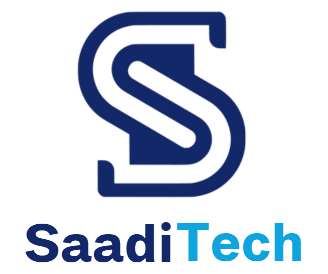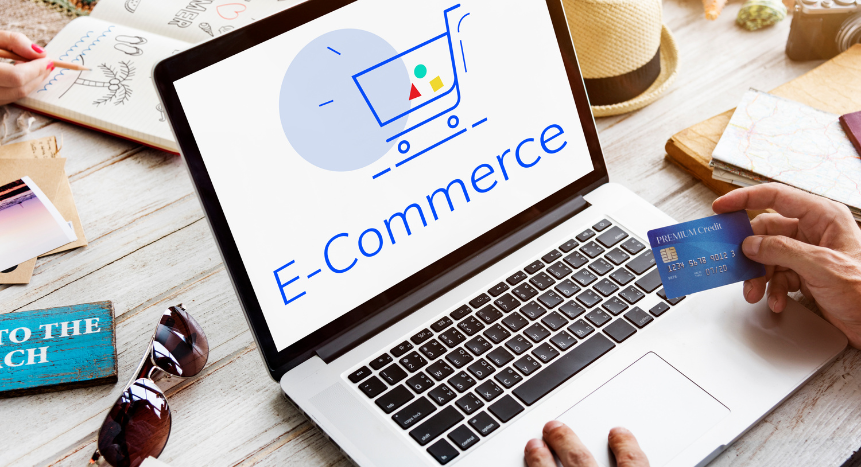Despite current obstacles, e-commerce business in Pakistan has enormous promise and is expanding quickly. The market is ready for more growth.
Pakistan’s E-Commerce Business Potential
● Notable Market Growth: The business with the highest profit margin is expected to grow at a Compound Annual Growth Rate (CAGR) of 17% through 2027, potentially reaching $12 billion by then. In 2024, sales were forecast to be $7.7 billion. The market will come to grow by 14.4% in 2025 alone.
● Big and Young Population: Pakistan is the fifth most populated country in the world, with an estimated 242 million people living there as of the beginning of 2025. Importantly, young people, who are very receptive to digital trends, make up 63% of this population.
● Increasing online and Mobile Penetration: As of early 2025, there are 116 million online users in Pakistan, with an internet penetration rate of 45.7%. Mobile broadband leads, with 142 million subscriptions. Additionally, the median speed at which mobile internet is downloaded is increasing.
● High Adoption of Mobile Commerce: Purchases made on mobile devices account for almost 80% of Pakistan’s total e-commerce volume, suggesting a significant preference for m-commerce.
● Growing Digital Payment Adoption: While Cash on Delivery (COD) remains dominant (75% of transactions), digital payment adoption is improving, with 84% of in-store mobile payments in FY24. There are initiatives to boost internet sales.
● Government Initiatives: Programs like the “National E-Commerce Council” and the “Digital Pakistan Policy” are designed to close gaps and encourage digital transformation.
● Social Commerce Boom: With 60.4 million Facebook users, 55.9 million YouTube users, and TikTok users rising at a rapid pace, social media platforms have created enormous opportunities for influencer marketing, direct sales, and consumer interaction. Without a specific website, many firms are selling straight on social media.
● Untapped Rural Markets: Using customized tactics to target underserved rural markets has a lot of potential.
How much vacuum (percentage) is there?
This is an important point that emphasizes the vast potential in E-commerce business:
● Low E-commerce Penetration in Total Retail: As of 2024, e-commerce accounts for only around 2% of Pakistan’s whole retail business, despite its rapid expansion. According to some reports, it only makes up 0.1% of total retail spending.
● Low Online User Conversion: In 2024, just 7% of Pakistani internet users made purchases online.
● Comparing to Global Markets: In terms of business with the highest profit margin, Pakistan’s e-commerce market is the smallest among similar nations, accounting for just 0.01% of the global e-commerce volume in 2024. Although it has the fifth-highest population, it ranks 46th in the world for e-commerce development.
● Conclusion on Vacuum: Since more than 90–95% of the retail business is still offline, this suggests a huge vacuum or unrealized potential. A sizable section of the population (more than 54%) still shops offline, and the great majority of customers with internet access do not regularly purchase online. There is a great chance for development here.

How long does it typically take to start an online E-commerce business store in Pakistan?
Depending on the size, complexity, and available resources of the company, the amount of time needed can vary greatly.
● Social commerce and small-scale E-commerce business (such as selling on Facebook or Instagram): ○ 1–4 weeks: This includes creating social media accounts, locating a few products, and beginning to manually process orders. It’s the easiest way to get in.
● Basic Online Store (using Shopify, WooCommerce, etc.): ○ 1–3 months: This includes product sourcing, product research, platform selection, store setup (design, product listings), payment gateway integration (local ones), and basic marketing.
● Customized/Medium-to-Large Scale Solution: ○ 3–6+ months: It can take a lot longer for a more complicated operation that includes integrated ERP systems, large inventory, custom website development, and advanced logistics.
Important Elements Affecting Time:
● Product Sourcing: It may require some time to locate trustworthy vendors.
● Platform Selection: Custom development takes longer than ready-made platforms.
● Business Registration: Completing legal requirements can take time.
● Payment Gateway Integration: There may be delays depending on the system and bank.
● Logistics Setup: It takes time to build trustworthy courier relationships.
● Marketing and Brand Building: It takes consistent work to get traction.
Skills Required to Establish an E-commerce Business in Pakistan:
Digital marketing, operational abilities, and commercial acumen are essential for success in Pakistani business with the highest profit margin.
Skills in E-commerce Business and Strategy:
● Product research and niche identification: the capacity to find products that are well-suited for the Pakistani market and have low levels of competition and high demand.
●Supplier Sourcing & Negotiation: Establishing connections with trustworthy domestic or foreign vendors to obtain high-quality goods at competitive costs.
●E-commerce Business planning & Financial Management: It includes understanding expenses, pricing strategies, profit margins, and financial management are all part of business planning and financial management.
●Legal and Regulatory Compliance: Comprehending consumer protection regulations, tax responsibilities (NTN from FBR), and business registration.
● Strategic Thinking & Flexibility: The capacity to swiftly modify business plans and assess market trends and rival conduct.
Digital Marketing & Sales Skills:
●Search Engine Optimization (SEO): Optimizing product listings and website content for search engines to improve visibility.
● Social media marketing: establishing a community, producing interesting content, and running sponsored advertisements on sites like Facebook, Instagram, and TikTok.
●Content Marketing: Developing compelling product descriptions, blog posts, and visual content.
●Paid Advertising (PPC/Social Media Ads): Running effective campaigns on Google Ads, Meta Ads (Facebook/Instagram), etc.
●Email Marketing: Building email lists and sending promotional campaigns.
●Conversion Rate Optimization (CRO): It is the process of examining user behavior on a website in order to enhance conversion rates and sales funnels.
●Copywriting: Writing persuasive and compelling product descriptions and marketing copy.
● Sales and Relationship Building: interacting with clients, answering their questions, and cultivating a sense of loyalty.
Technical & Operational Skills:
●E-commerce business Platform administration: Expertise in product listing, order administration, and website updates using platforms such as Shopify, WooCommerce (WordPress), or custom content management systems. For simple setup, no coding is frequently needed.
●Website Design & User Experience (UX): Knowing the fundamentals of a visually appealing, intuitive, and mobile-friendly website.
●Inventory management: Monitoring stock levels, controlling product variances, and averting stockouts are all part of inventory management.
●Logistics and supply chain management: includes handling refunds, collaborating with reputable courier firms, and comprehending shipping procedures.
●Customer service: Responding quickly to consumer concerns, questions, and assistance.
●Data analytics: Monitoring website performance, sales information, and consumer behavior with tools like Google Analytics to make well-informed decisions.

Soft Skills:
Problem-Solving & Resilience:
Pakistani e-commerce business with the highest profit margin encounters particular difficulties (such as payment trust issues and logistics); the capacity to bounce back from failures is essential.
●Effective and transparent communication: with team members, suppliers, and consumers.
●Time management and organization: balancing several duties in a hectic setting.
●Constant Learning: Since the e-commerce industry business with the highest profit margin is always changing, it is necessary to always learn new tactics and tools.


0 Comments